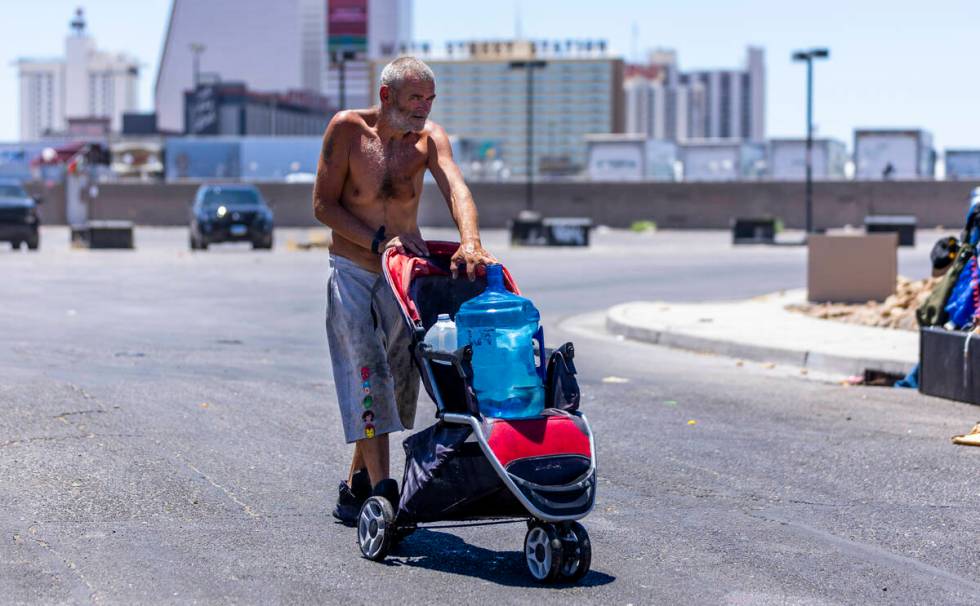Las Vegas heat forecast likely to bake June into weather history

After a few days of respite from the 100s, June 2024 is set to make a run to officially become the hottest June in Las Vegas weather history.
It starts Friday with a projected high of 107 in central Las Vegas … and it goes up from there.
Daily highs around 110 and morning lows in the mid-80s are forecast by the Las Vegas office of the National Weather Service from Saturday through Thursday, close to the end of June.
As of Thursday, the June average daily temperature (average of the high and low) was 92.6, two-tenths short of the record heat of 92.8 for the first 20 days of June set in 2016.
The June daily average temperature will surpass 92.8 degrees by the end of the month — if the forecast of lows around 85 and highs of 110 are on target.
Chance of moisture
The only thing that might might get in the way of the record heat is a small chance of moisture coming up from the Gulf of California.
“Tropical Storm Alberto is crossing central Mexico and the Gulf of California,” meteorologist John Adair said. “A lot of water is going to be drawn into Arizona and the Four Corners area. Sometimes that can help moisture from the Gulf of California surge up into Southern Nevada. It’s the only thing that would throw a wrench in as moisture will bring temps down a bit but also raise the humidity.”
The chances of moisture close to Southern Nevada are 5 percent on Saturday and up to 10 percent on Sunday, Adair said, adding that the chances were likely that it would happen between Searchlight and Lake Havasu.
The Saturday high will be near 110 with winds gusts to 20 mph. Sunday will also be around 110 after a morning low near 85.
Las Vegas part of heat study
The record June heat in the U.S. southwest was part of a study by climate scientists from World Weather Attribution. The report, released early Thursday, shows deadly heat that recently hit North and Central America was 35 times more likely due to human-induced climate change. The study also says that the frequency of these extreme events has rapidly increased in recent years because of the use of fossil fuels.
Clark County has not released information about the opening of cooling centers, but doing so would be likely for prolonged days at 110.
The prolonged dry weather has also sparked more fire restrictions as grasses and tinder continue to dry out.
Contact Marvin Clemons at mclemons@reviewjournal.com.